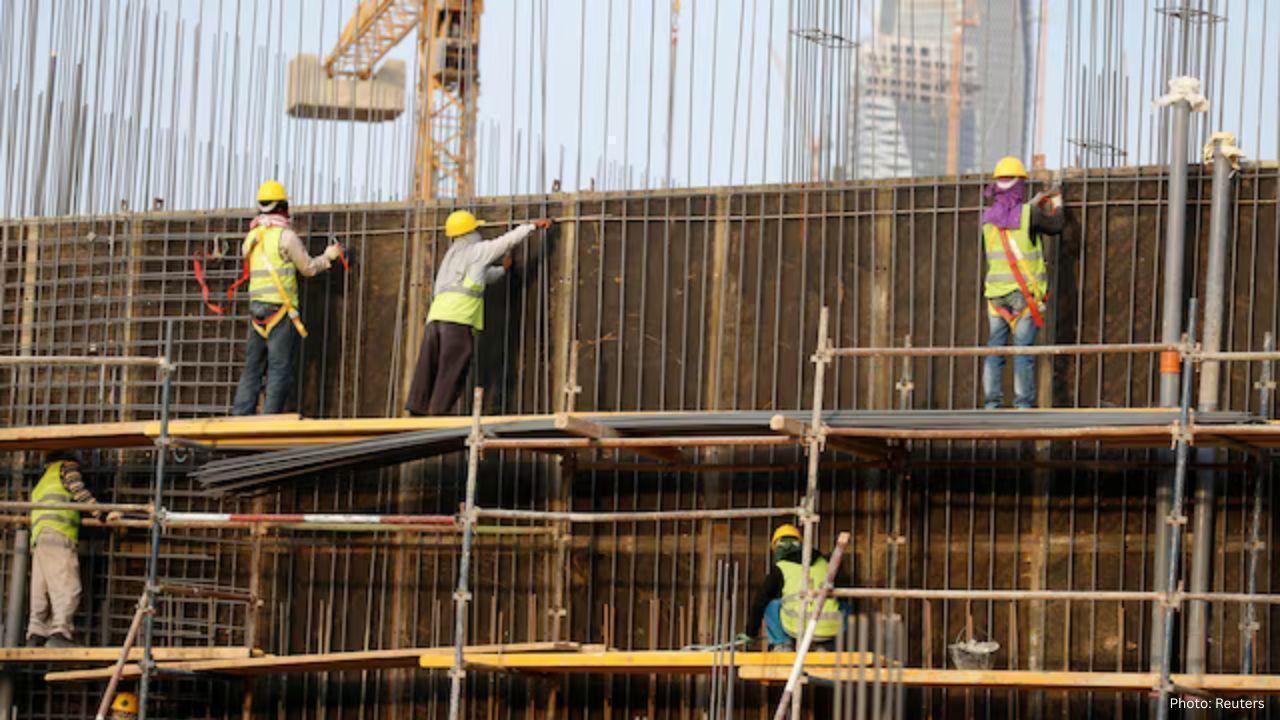You have not yet added any article to your bookmarks!

Join 10k+ people to get notified about new posts, news and tips.
Do not worry we don't spam!

Post by : Anis Farhan
Thailand has entered the fourth quarter of 2025 facing a mix of promise and pressure. The country, long celebrated as Southeast Asia’s tourism jewel and a rising player in the digital finance sector, is now navigating challenges that will define its economic outlook heading into 2026. With policymakers betting big on tourism revival, cryptocurrency adoption, and structural reforms in the financial sector, the stakes have never been higher. What happens in the coming months will set the tone for whether Thailand emerges as a resilient regional powerhouse or continues to wrestle with lingering uncertainties.
Tourism has always been the backbone of Thailand’s economic identity, accounting for nearly 20 percent of GDP before the pandemic. As the world fully reopens, Thailand has made a strong comeback, welcoming millions of international travelers in 2025. Yet, the challenge in the last quarter of the year lies not in attracting tourists but in sustaining momentum amidst rising global costs and competition from regional destinations like Vietnam, Indonesia, and Malaysia.
Officials in Bangkok are actively promoting new tourism segments such as cultural tourism, eco-tourism, and wellness retreats to diversify beyond the traditional beach and nightlife appeal. The introduction of visa-free entry for select countries has already spurred visitor arrivals, but the government knows that infrastructure and service quality must match expectations. Seasonal trends also weigh heavily on Q4, as international arrivals peak during winter holidays. The test for Thailand is whether it can maintain high occupancy rates in hotels and resorts, and at the same time, ensure that tourism revenues flow into local communities rather than just large operators.
Thailand’s embrace of cryptocurrency has captured global attention, particularly after the government approved a framework for digital assets earlier this year. This bold move placed Thailand at the forefront of financial innovation in Asia. The final quarter of 2025 will be a stress test for the country’s crypto experiment, as volatility in global markets threatens to undermine investor confidence.
Bangkok’s financial regulators are working to strike a balance between innovation and risk management. On one hand, policymakers see crypto as a way to attract foreign investment, enhance fintech competitiveness, and integrate Thailand into the digital economy. On the other, they remain wary of speculative bubbles, money laundering, and cyber threats. The central bank’s plans to pilot a digital baht are also gaining momentum, signaling Thailand’s intent to remain ahead of the curve.
For ordinary Thais, however, the question remains whether cryptocurrency can offer real-world benefits such as remittance efficiency, financial inclusion, and small-business growth. If mismanaged, the crypto push could deepen inequality or expose retail investors to sudden losses. Q4 will provide critical insights into how Thailand balances these competing forces.
Thailand’s financial sector is simultaneously grappling with old and new challenges. Structural issues such as household debt, rising living costs, and uneven income distribution continue to weigh heavily on the economy. According to recent government estimates, household debt now hovers around 90 percent of GDP, among the highest in Asia. This puts enormous pressure on consumer spending power, a vital driver of domestic demand.
The banking system remains resilient but is under scrutiny as interest rates and inflation trends fluctuate. Regulators are encouraging banks to expand credit responsibly while supporting small and medium-sized enterprises (SMEs), which make up the backbone of Thailand’s economy. Efforts are underway to digitalize financial services, reduce transaction costs, and encourage financial literacy across rural provinces. The success or failure of these reforms in Q4 could determine whether Thailand strengthens its long-term competitiveness or struggles with recurring cycles of debt-driven slowdowns.
An interesting dynamic emerging in Thailand is the overlap between tourism and financial reform. The government sees foreign tourism not just as a source of spending on hotels and restaurants but as a driver of broader economic stability. Tourist revenue helps offset the trade deficit, generates foreign currency reserves, and boosts employment across multiple sectors.
In Q4, Thailand hopes to cross the threshold of 30 million tourist arrivals for the year, a figure that would match pre-pandemic highs. But there is more at stake than just numbers. Revenue per tourist, efficiency of money circulation, and long-term sustainability are all under the microscope. For example, policymakers want to ensure that digital payments and financial tools integrate seamlessly with the tourism industry, reducing leakages and promoting transparency.
The role of crypto in this mix is also intriguing. With Thailand experimenting with blockchain-based tourism services and crypto-friendly payment options, Q4 could mark a turning point in how the country monetizes its tourism lifeline. Success here could create a model for other nations in the region.
Thailand’s economic narrative cannot be isolated from the broader global picture. Geopolitical tensions, oil price fluctuations, and global inflationary pressures continue to impact Thailand’s trade and financial flows. Meanwhile, regional competition is intensifying, with neighboring countries aggressively promoting their own tourism and financial ecosystems.
Yet, Thailand retains significant advantages. Its strategic location in mainland Southeast Asia, deep cultural heritage, and relatively stable political environment provide a strong foundation. If the government can navigate external shocks with pragmatic policies, the country could strengthen its role as a key hub in Asia.
While international tourism and crypto policy grab headlines, the everyday realities of Thai citizens remain crucial to economic success. Household budgets are under strain from food and energy costs, and wage growth has been sluggish. The government’s attempts to stimulate domestic consumption through subsidies and targeted support are being closely watched in Q4.
The key question is whether consumer confidence can rebound alongside international optimism. If local demand weakens, it could offset gains from tourism and foreign investment. A healthy economy needs both external revenue and internal spending power to grow sustainably.
As Thailand navigates the final quarter of 2025, it finds itself in a balancing act. The promise of record-breaking tourist arrivals, bold crypto innovation, and financial reforms all offer reasons for optimism. Yet, risks remain high, ranging from global headwinds to domestic structural weaknesses.
How Thailand performs in this quarter will likely define its starting point for 2026. A strong finish could cement its reputation as a resilient and adaptive economy in Southeast Asia. A weaker performance, however, may raise questions about whether its growth model is too dependent on tourism and vulnerable to external shocks.
This article is based on current economic and financial trends in Thailand. It aims to provide analysis and insights without predicting specific outcomes. Readers are encouraged to follow official updates and financial advisories before making investment or policy decisions.










Two Telangana Women Die in California Road Accident, Families Seek Help
Two Telangana women pursuing Master's in the US died in a tragic California crash. Families urge gov

Ranveer Singh’s Dhurandhar Roars Past ₹1100 Cr Worldwide
Ranveer Singh’s Dhurandhar stays unstoppable in week four, crossing ₹1100 crore globally and overtak

Asian Stocks Surge as Dollar Dips, Silver Hits $80 Amid Rate Cut Hopes
Asian markets rally to six-week highs while silver breaks $80, driven by Federal Reserve rate cut ex

Balendra Shah Joins Rastriya Swatantra Party Ahead of Nepal Polls
Kathmandu Mayor Balendra Shah allies with Rastriya Swatantra Party, led by Rabi Lamichhane, to chall

Australia launches review of law enforcement after Bondi shooting
Australia begins an independent review of law enforcement actions and laws after the Bondi mass shoo

Akshaye Khanna exits Drishyam 3; Jaideep Ahlawat steps in fast
Producer confirms Jaideep Ahlawat replaces Akshaye Khanna in Drishyam 3 after actor’s sudden exit ov